Nuclear medicine
Nuclear medicine is primarily concerned with functional imaging and 'molecular' therapy. Radiopharmaceuticals (radioactive drugs) are used for imaging, e.g. with positron emission tomography (PET), and for the treatment of pathogenic processes such as tumors, supported by computed tomography (CT) imaging if necessary to visualize anatomical structures.
Our range of services includes imaging with PET/CT, SPECT/CT (Single Photon Emission Computed Tomography) and scintigraphy of tumor diseases as well as diseases of the heart, thyroid, brain, kidneys and other organs.
We have established ourselves as a center for nuclear medicine therapies in Switzerland and play a leading role in the Center for Neuroendocrine and Endocrine Tumors, which has been awarded the status of a "Center of Excellence" by the European Neuroendocrine Tumor Society (ENETS). With this in mind, we specialize in the treatment of neuroendocrine tumours (with an international reputation in this field), but also in the treatment of advanced, hormone-refractory prostate cancer, liver tumours and thyroid diseases.
Our patients have access to our own nuclear medicine ward with 9 beds.
Together with the Department of Endocrinology, Diabetology & Metabolism at the USB, we operate the interdisciplinary thyroid outpatient clinic for the diagnosis and treatment of thyroid diseases. We also work closely with the Department of Cardiology at the USB for PET/CT and SPECT/CT imaging of the heart of patients with coronary heart disease.
Our team consists of 15 doctors, 18 radiology specialists, 6 nursing staff and 5 administrative staff.
Procedure
Our range of examinations extends from scintigraphy to fusion imaging in cross-sectional imaging. The fusion of nuclear medicine scintigrams with the morphological images from computer tomography (CT) is carried out in a single examination. We have state-of-the-art nuclear medicine equipment including SPECT/CT (Single Photon Emission Computed Tomography) and PET/CT (Positron Emission Tomography) at our disposal for all examinations.
The radioactive substances used for diagnostics and therapy are used in minimal quantities and in a very targeted manner. They primarily accumulate in the diseased organ and hardly affect the healthy tissue.
Research and teaching
Our research focuses on the further development of the treatment of neuroendocrine tumors with radioactive peptides and on the development of new substances for the early detection and treatment of diseases. We offer lectures and courses as part of university teaching (human medicine). In addition, we are responsible for the further training of doctors and MTRAS in our specialist field and are authorized as a category A training centre in accordance with Swiss training regulations for further training as a specialist in nuclear medicine.
Research focus of nuclear medicine
In research, we are known for quickly adopting new developments in radiopharmacy into clinical routine for the benefit of our patients.
Our research focuses on the further development of diagnostics and the treatment of neuroendocrine tumors with radioactive peptides and on the development of new substances for the early detection and treatment of diseases:
Over the last 10 years, the Department of Radiopharmaceutical Chemistry has worked with us to develop several 68Ga-labeledtracers for PET (positron emission tomography) or PET/CT (combination of PET and computed tomography) imaging and evaluated them in patients. Two tracers developed at the University Hospital Basel, 68Ga-DOTATOCand 68Ga-DOTANOC, are now established PET tracers worldwide and have become the standard in the imaging of neuroendocrine tumors. The development of new 68Ga-basedPET tracers has great potential, particularly in clinical tumor diagnostics, and thus strengthens the university's focus on oncology.
The specific binding of radioactive substances to molecular target structures can also be used therapeutically. Radiopharmaceutical Chemistry at the University Hospital Basel was one of the first institutions worldwide to recognize this possibility and has developed various therapeutically effective radiotracers and evaluated them together with Nuclear Medicine over the last 15 years. Our most successful development was 90Y-DOTATOC/177Lu-DOTATOC. Today, 90Y-DOTATOC/177Lu-DOTATOCtherapyis the standard therapy for patients with neuroendocrine tumors. Due to our pioneering role and the unique position of 90Y-DOTATOC/177Lu-DOTATOC therapy, this service segment has been recognized as a top medical focus of the University Hospital since 2010.
We are currently planning clinical trials to further improve the imaging and treatment of patients with neuroendocrine tumors.
Nuclear medicine ward
We offer our patients a specially equipped ward. This fulfills the statutory radiation protection requirements for nuclear medicine therapies.
The ward, which was renovated in 2018, is located at Petersgraben 4 on the 4th floor. There are five single rooms and two double rooms with a view of the park. The necessary shielding measures are invisibly integrated into the walls and doors.
Our patients are shielded, but are regularly monitored by the nursing staff - taking into account the radiation protection regulations - and checked for their well-being.
All rooms are equipped with:
- WC and shower (with own waste water system)
- WLAN
- Television and radio
- telephone
Nuclear medicine team
Department management
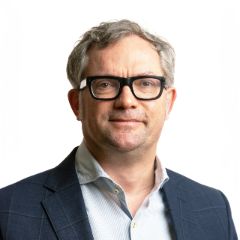
Prof. Dr. phil. Dr. med Damian Wild
Leitung Nuklearmedizin
Radiologie und Nuklearmedizin
Tel. +41 61 556 53 84
Management physicians
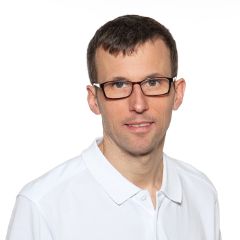
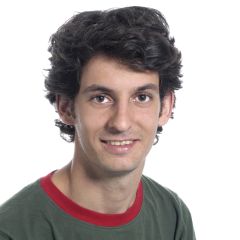
Dr. Guillaume Nicolas
Kaderarzt, Stv. Leitung Nuklearmedizin
Radiologie und Nuklearmedizin
Tel. +41 61 328 66 82
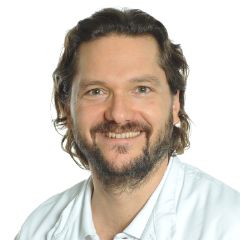
PD Dr. Christof Rottenburger
Kaderarzt, stv. Leitung Nuklearmedizin
Radiologie und Nuklearmedizin
Tel. +41 61 328 65 51
Senior physicians
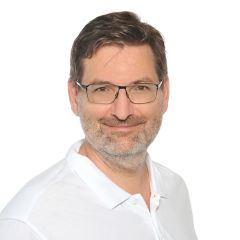
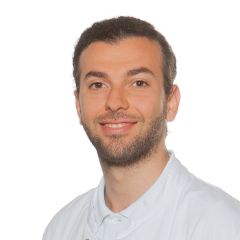
Dr. Abdulrafee Mushaweh - EDIR
Stv. Oberarzt Nuklearmedizin
Radiologie und Nuklearmedizin
Tel. +41 61 328 63 29
Residents
Andrei-Razvan Istoc
Assistenzarzt Nuklearmedizin
Radiologie und Nuklearmedizin
Tel. +41 61 328 78 03
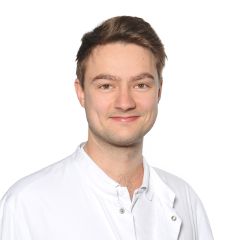
Scientific staff
Lisa McDougall
Wissenschaftliche Mitarbeiterin radiopharmazeutische Chemie
Radiologie und Nuklearmedizin
Tel. +41 61 328 68 08
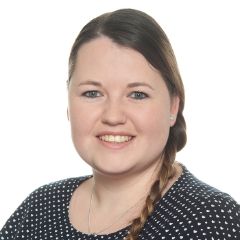
Franziska Recher
Studienkoordinatorin Nuklearmedizin
Radiologie und Nuklearmedizin
Tel. +41 61 328 66 99
Team leaders
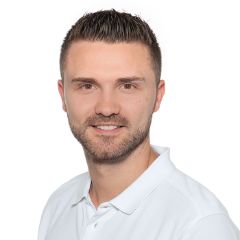
Haris Hasanic
Teamleiter Radiologiefachpersonen Nuklearmedizin und BMAs radiopharmazeutische Chemie
Radiologie und Nuklearmedizin
Tel. +41 61 328 52 57
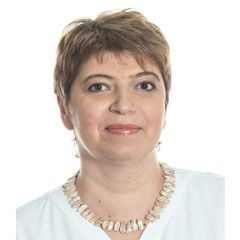
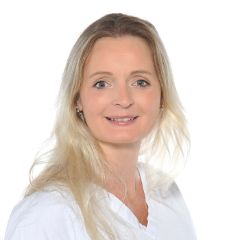
Michelle Pintacoda
Leiterin Pflege Nuklearmedizin
Radiologie und Nuklearmedizin
Tel. +41 61 556 56 58
Training managers
No data available
Registration
Assistance
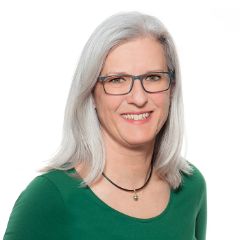
Brigit Avis-Furler
Assistentin Nuklearmedizin und radiopharmazeutische Chemie, Fachverantwortung Patientenmanagement Nuklearmedizin, Mitglied Tumorzentrum
Radiologie und Nuklearmedizin
Tel. +41 61 556 53 84
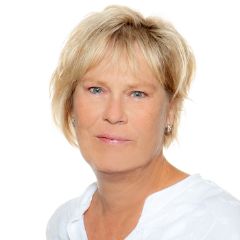
Gabriele Bertschi
Patientenmanagement Nuklearmedizin
Radiologie und Nuklearmedizin
Tel. +41 61 328 51 79
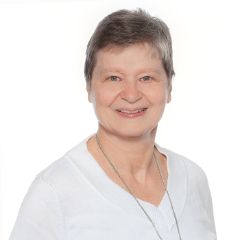
Christine Evard
Patientenmanagement Nuklearmedizin
Radiologie und Nuklearmedizin
Tel. +41 61 556 57 23
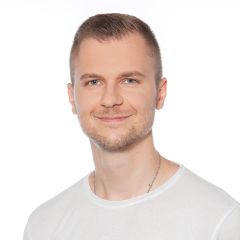
Alfred Guggenbühl
Patientenmanagement Nuklearmedizin
Radiologie und Nuklearmedizin
Tel. +41 61 328 65 33
